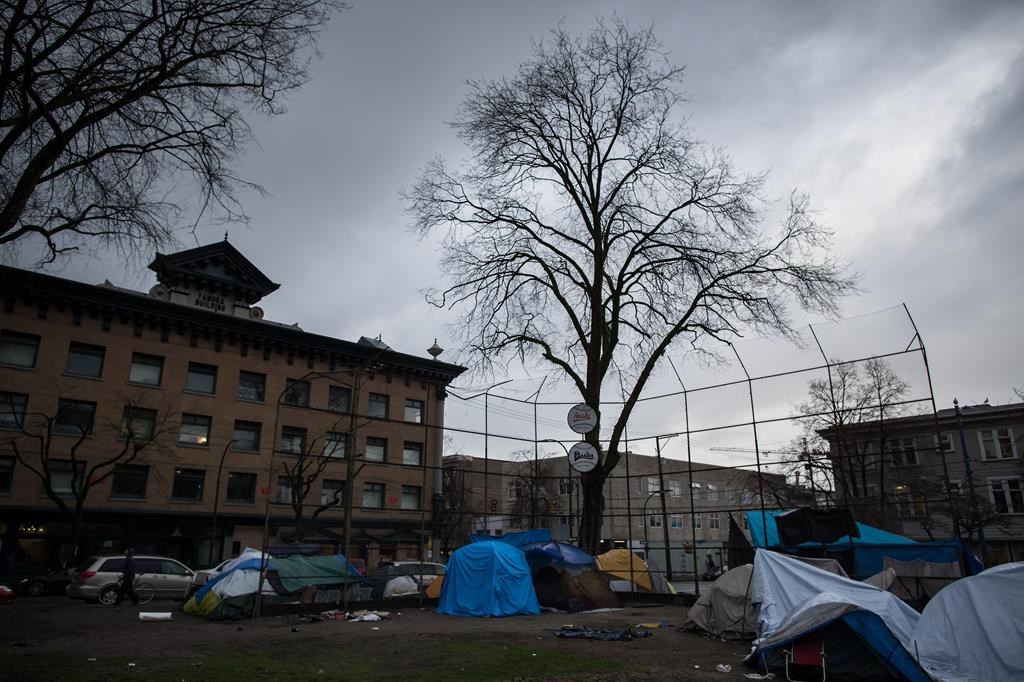As the novel coronavirus continues to spread throughout the community in British Columbia, advocates for the homeless are growing increasingly concerned.

Union Gospel Mission (UGM) spokesperson Jeremy Hunka says people living on the street tend to already have compromised immune systems, and don’t have a home to self-isolate in if they become ill.
The mission has moved to increase the distance between clients in its shelter and is screening people for symptoms.
“We’re forced with the agonizing reality that if people come looking for help who have symptoms of COVID-19 we can’t have them in our shelter, because one person could put at risk the other 71 people that are there,” he said.

That leaves them in the “heartbreaking” position where they have to turn sick people away with nowhere to go, and nothing but a sleeping bag and some extra supplies, he said.

Get daily National news
Hunka says he wants to see a regional plan put in place to support the homeless at risk of COVID-19.
- Board of Metro Vancouver’s CAO tight-lipped about status, cost of ‘leak’ investigation
- Watch the 60th annual Variety Show of Hearts Telethon
- ‘May be a thawing’ between Canada and U.S., B.C. premier says after tariff court ruling
- Guns in photo posted by Tumbler Ridge shooter’s mother were legal, expert says
Over at Oppenheimer Park, homeless camp liaison Chrissy Brett said she wants to see urgent funding from the province to get people off the street and into a place where they can stay warm and clean.
On Thursday, the City of Vancouver moved to shut down the indoor Four Directions Trading Post — formerly known as the Downtown Eastside Street Market.
Trading post executive director Constance Barnes said the group has moved the operation outside and has spaced out tables to maintain social distancing.
But she said shutting the market down breaks up a key hub where volunteers can check in with vulnerable people and educate them about the risk of the virus.

“Many of them are sick, many of them are the most vulnerable.”
On Thursday, Vancouver Mayor Kennedy Stewart called on the province to step in.
“We need a plan for testing front-line workers, funds to keep SROs clean, and systems to ensure people living in SROs or on the streets know the risks and how to stay as safe as possible,” he said.
Global News has requested information on the province’s plan to cut potential transmission of the virus among B.C.’s homeless.
Vancouver has deployed 11 hand washing stations around the Downtown Eastside, and a spokesperson said the city was looking at community centres as a possible option to isolate homeless people who may be exposed to the virus.









Comments
Want to discuss? Please read our Commenting Policy first.